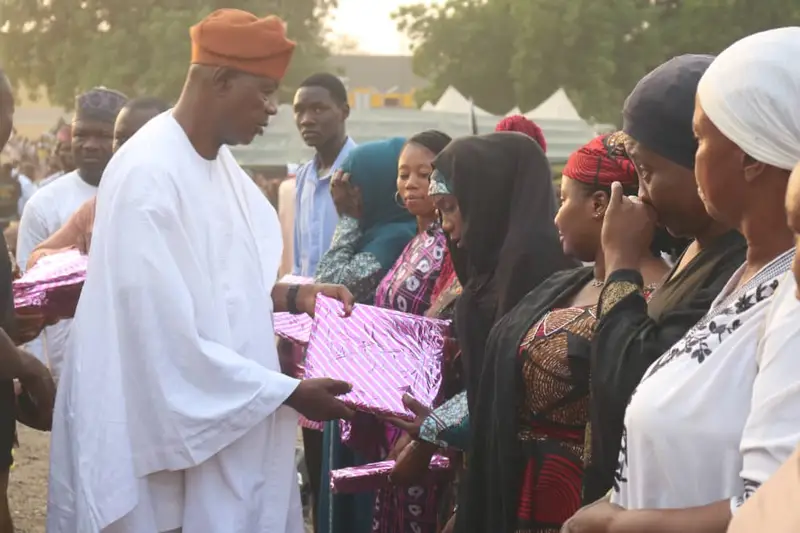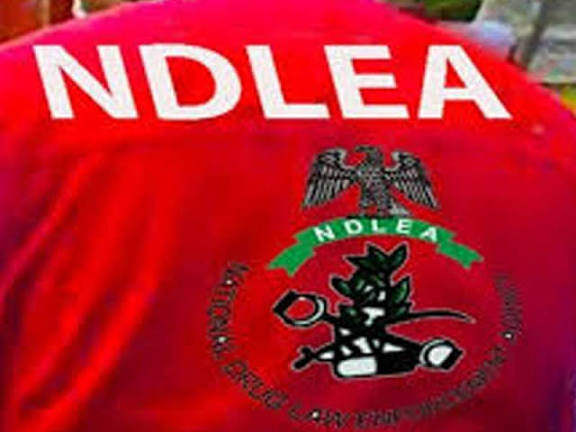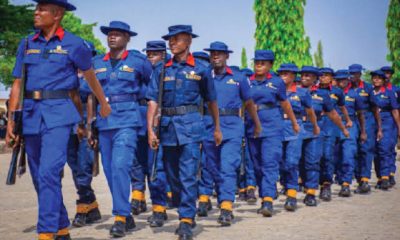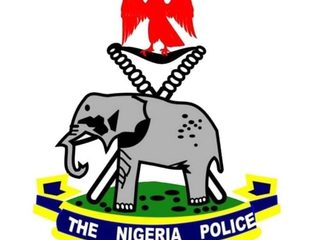
IBB reveals Army General that annulled June 12 Presidential election won by MKO Abiola
IBB reveals Army General that annulled June 12 Presidential election won by MKO Abiola
Thirty two years after the controversial annulment of the June 12, 1993, presidential election, Ibrahim Babangida, the retired army general and former military president, has offered a detailed account of the events that led to one of Nigeria’s most significant political crises.
In his much-anticipated memoir, ‘A Journey in Service’, which was launched in Abuja on Thursday, Babangida reveals new insights into the 1993 election annulment. He shared that he was in Katsina when the news broke about the annulment of the election, which had been won by MKO Abiola of the Social Democratic Party (SDP).
According to Babangida, the announcement came from his second-in-command’s press secretary, without his knowledge or consent.
Babangida later learned that Sani Abacha, his chief of defense staff who would later become the military head of state, was a key player in the forces that opposed the election results.
Amid the turmoil following the annulment, Babangida stepped down as president in August 1993, ushering in an interim government under Ernest Shonekan.
However, Abacha, who had already amassed considerable power within a factionalized military, would go on to seize control in November 1993, ultimately imprisoning Abiola for declaring himself president.
Reflecting on the events, Babangida noted the difficulty of removing Abacha, who had become a dominant figure in the military, especially when Babangida himself stepped down from power.
The journey to the annulment of the June 12 election began days earlier, when a judge granted an injunction stopping the electoral commission from proceeding with the election.
The injunction was filed by the Association to Better Nigeria (ABN), led by Arthur Nzeribe, a man with close ties to Babangida.
Despite this relationship, Babangida denies supporting ABN’s activities, further elaborating in his memoir, published by Bookcraft Ltd.
Babangida’s memoir now offers a rare and personal glimpse into one of the most pivotal moments in Nigeria’s political history, shedding light on the behind-the-scenes struggles and the figures who played crucial roles in shaping the nation’s fate.
“From out of nowhere, on June 10, two days before the presidential election, the same shadowy group, ABN, which had been campaigning for an extension of military rule, approached the Abuja High Court of Justice Bassey Ikpeme for an injunction to stop NEC (National Electoral Commission) from conducting the elections,” he said in his memoir.
“Unknown to me at the time, Justice Ikpeme, who was relatively young at the Bench, had worked in the chambers of the Attorney-General and Minister of Justice, Clement Akpamgbo. Strangely, Justice Ikpeme, in the dead of night, in clear violation of Decree 13, which barred any court from interfering with INEC’s conduct or scheduling of the elections, granted the ABN an injunction stopping NEC from conducting the June 12 elections. There was confusion everywhere.”
He stated that he promptly called an emergency meeting of the National Defence and Security Council (NDSC), the country’s top governing body, to deliberate on the next steps.
“On Friday, June 11, as the NDSC meeting was going on, I learned that a Lagos High Court had ruled that NEC should go ahead with the elections. The NDSC meeting on Friday, June 11, only hours before the scheduled elections, was one of the stormiest meetings I ever conducted as President. Strangely, the Attorney General and Justice Minister, Akpamgbo, who was the nation’s chief law officer and who ought to know that the Justice Ikpeme court order violated an extant law (and was tacitly supported, it turned out by some of my topmost military officers), advised that the elections be postponed in compliance with the Abuja court order. Professor (Humphrey) Nwosu (NEC chairman) insisted, to the dismay of my top military colleagues, that he had enough powers under the law to proceed with the elections.
“The arguments went on for hours in a tense atmosphere, peopled by some who wanted the elections postponed, among them the Chief of Defence Staff, General Sani Abacha, Lt-General Joshua Dogonyaro and a few Service Chiefs. But I had my views bottled inside me! Even before Professor Nwosu presented his compelling argument, I decided that the elections should proceed, backed firmly by the Chief of Army Staff, Lt-General Salihu Ibrahim.”
Babangida recalled looking across the room and telling Nwosu, “Proceed with the elections. Go to your office, hold a press conference, and announce that the elections will take place tomorrow as scheduled.”
However, he revealed that on June 16, despite the voting being peaceful and orderly, Nwosu unexpectedly halted the announcement of the election results.
“And then, on June 16, without my knowledge or prior approval, NEC Chairman, Professor Nwosu, announced the suspension of the June 12 election results ‘until further notice’. I knew instantly that certain fifth columnists were at work and that there was a need for extra care! And even after that suspension of the announcements of results, ABN obtained another ‘strange’ court order from Justice Saleh’s court in Abuja, stopping the release of the results of the elections,” he wrote.
On June 23, Babangida traveled from Abuja to Katsina to offer his condolences to the Yar’Adua family following the death of their patriarch, Musa Yar’Adua, a former minister of Lagos affairs and the father of Umaru Yar’Adua, the late Nigerian president who passed away in office in 2007.
Babangida narrated: “The funeral had taken place, and as I got ready to leave, a report filtered to me that the June 12 elections had been annulled. Even more bizarre was the extent of the annulment because it terminated all court proceedings regarding the June 12 elections, repealed all the decrees governing the Transition and even suspended NEC! Equally weird was the shabby way the statement was couched and made. Admiral (Augustus) Aikhomu’s press secretary, Nduka Irabor, had read out a terse, poorly worded statement from a scrap of paper, which bore neither the presidential seal nor the official letterhead of the government, annulling the June 12 presidential elections. I was alarmed and horrified.
“Yes, during the stalemate that followed the termination of the results announcement, the possibility of annulment that could lead to fresh elections was loosely broached in passing. But annulment was only a component of a series of other options. But to suddenly have an announcement made without my authority was, to put it mildly, alarming. I remember saying: ‘These nefarious ‘inside’ forces opposed to the elections have outflanked me!’ I would later find out that the ‘forces’ led by General Sani Abacha annulled the elections. There and then, I knew I was caught between ‘a devil and the deep blue sea’!! From then on, the June 12 elections took on a painful twist for which, as I will show later, I regrettably take responsibility.”
News
Governor donates N9 million to wives of fallen soldiers

Governor donates N9 million to wives of fallen soldiers
Gov. Ahmed Ododo of Kogi, has announced the donation of Nine million naira to nine widows of fallen soldiers during the West African Social Activities (WASA) 2025 festivities.
The ceremony, held at the 12 Brigade headquarters, Chari‑Maigumeri Barracks, Lokoja, brought together military personnel, community leaders, and families of service men, who have paid the ultimate price for Nigeria’s security.
Represented by the State Security Adviser, Jerry Omodara the governor reaffirmed his Administration’s commitment to supporting Nigerian Army and security agencies.
Rep of Gov. Ahmed Ododo, the State Security Adviser Cdr Jerry Omodara (rtd), presenting gifts to wives of fallen soldiers at the 12 Brigade’s Nigerian Army WASA 2025, held at Chari Maigumeri Barracks Lokoja
He described the initiative as a moving gesture underscoring the state’s gratitude for the ultimate sacrifice made by its military families.
Ododo, serving as Special Guest of Honour, praised the 12 Brigade’s WASA describing it as a vibrant showcase of Nigeria’s cultural heritage.
“The event is a vital morale‑boost for troops who have spent the year on operations, training and community security.
“The annual WASA tradition has been “impressively sustained” and provides soldiers a chance to unwind with families after a demanding year,” he said.
He traced WASA’s roots to the West African Frontier Force, the predecessor of the Nigerian Army, emphasising its role in fostering unity, camaraderie and a sense of belonging among officers, soldiers and their dependents.
The governor lauded the colorful performances by various cultural troupes, saying the displays proved that “you have not broken links with your cultural backgrounds.”
He congratulated the brigade for successful 2025 operations that kept peace and security across Kogi, urging personnel to remain “focused, resilient and proactive” as they enter 2026.
Ododo reaffirmed the state’s commitment to supporting the Nigerian Army and other security agencies, promising continued assistance to improve welfare and operational effectiveness.
Earlier, the Commander, 12 Brigade, Nigerian Army, Brig. -Gen. Kasim Sidi, had assured Kogi of the army’s commitment to maintaining peace and security.
He described WASA as a significant occasion that brought together officers, soldiers, families, and friends to celebrate shared identity, cultural heritage, and collective achievements.
The commander praised the dedication, discipline, and professionalism of officers and soldiers, highlighting the Brigade’s achievements in 2025, including successful military operations against bandits and kidnappers in Kogi. (NAN)
News
Notorious Drug Kingpin who killed three NDLEA operatives 12-years ago arrested

NDLEA arrests wanted drug kingpin, recovers illicit drugs from his hideout
Operatives of the National Drug Law Enforcement Agency (NDLEA) have successfully apprehended a long-wanted drug kingpin, ending a 12-year manhunt following his involvement in the brutal killing of three NDLEA officers.
This is contained in a statement by the Director, Media and Advocacy NDLEA, Mr Femi Babafemi on Sunday in Abuja.
Babafemi said that the suspect was notorious for drug trafficking, evading arrest and mobilising armed thugs against security agents.
He said that the suspect was on Friday, Jan. 16 tracked to his hideout in Owode town, Ogun State by tactical teams of the agency following credible intelligence.
He also said that during the clinical operation, the suspect was found in possession of 69 kilograms of skunk, a strain of cannabis.
He added that the arrest marked a significant breakthrough in the agency’s commitment to ensuring that no fugitive, regardless of how long they evaded justice, remained beyond the reach of the law.
“The suspect’s criminal history is marked by extreme violence and lawlessness.
“As a result, he had on June 15, 2014 orchestrated a barbaric mob action against a team of NDLEA officers who had attempted to arrest him at his enclave.
“The attack resulted in the cold-blooded murder of three NDLEA officers, including Rabiu Usman Kazaure and two others, who were killed by armed thugs mobilised by Jimoh.
“While the suspect managed to escape the scene that day, the agency remained resolute in its pursuit of justice for the fallen heroes,” he said.
In another encounter with the suspect on Aug. 12, 2023, when NDLEA operatives stormed his residence in Ado-Odo town, Ogun state, he managed to escape.
Babafemi however, said that the operatives succeeded in recovering 139 sacks of skunk with a total weight of 1,922 kilograms.
This, he said was following assets forfeiture proceedings instituted in court by the agency, the house in Ado-Odo, which served as a warehouse for his illicit drug trade, has since been finally forfeited to the Federal Government.
While commending the officers and men of the Ogun command for the arrests and seizures, the NDLEA Chairman, retired Brig. Gen.-Buba Marwa acknowledged their commitment.
Marwa enjoined them as well as their colleagues nationwide to maintain the current tempo of their balanced approach to the Agency’s drug control efforts.
He described the arrest of the wanted drug kingpin as a triumph of justice and a testament to the agency’s long memory.
He added that the arrest sends a clear and unambiguous message to all drug barons and fugitives.
“You may run, and you may hide for a season, but the long arm of the law will eventually find you.
“The arrest is particularly significant because it closes a painful chapter that began on June 15, 2014.
“For twelve years, this individual lived with the blood of our gallant officers on his hands. He mistakenly thought that time had erased his crimes.
“Today, we have proven that the NDLEA does not forget its own. We do not forget the sacrifices of those who laid down their lives in the service of our fatherland.
“This arrest is for the families of those three officers who have waited 12 years for justice”, Marwa said in a tribute to the officers lost over a decade ago.(NAN)
News
Food prices crash further in major Markets, as Residents call for sustainability

Food prices crash further in major Markets, as Residents call for sustainability
Prices of some food items have further dropped across markets in the Federal Capital Territory (FCT), Abuja, as residents welcomed the development.
A market survey conducted by the News Agency of Nigeria(NAN) across major markets in the FCT showed that while prices of several staples declined after the festive season, some food items remain expensive.
Some residents who spoke to NAN said the drop in prices had brought some relief but urged the government to ensure sustainability, as many households were still constrained by low purchasing power.
Latest food inflation statistics released by the National Bureau of Statistics (NBS) showed that Nigeria’s food inflation rate dropped in December 2025.
According to the NBS, food inflation stood at -0.36 per cent on a month-on-month basis, representing a decrease of 1.49 percentage points compared to the 1.13 per cent recorded in November 2025.
The bureau attributed the decline to a reduction in the average prices of items such as tomatoes, garri, eggs, potatoes, carrots, millet, vegetables, plantain, beans, wheat grain, ground pepper and fresh onions, among others.
At Garki Model Market, NAN observed notable price drops in several food items between November 2025 and January 2026.
A dustbin basket of big red tomatoes is being sold for between N5,000 and N5,500, as against N6,000 to N7,000, while a dustbin basket of shombo dropped to N3,000 from N4,500 to N5,000 recorded between November and December.
Similarly, a dustbin basket of fresh pepper dropped significantly, falling from between N4,500 and N5,000 to about N2,500, while tatashe dropped from between N5,000 and N6,000 to N3,000.
A dustbin basket of onions is being sold for N4,000 compared to N4,500 previously, and sweet potatoes dropped to between N1,000 and N1,800 from N3,000.
However, Irish potatoes recorded a sharp increase, increasing from 5,000 to N6,000 to between N9,000 and N10,000 per dustbin basket.
Rice prices remained relatively stable, with a 50kg bag of local rice selling for between N52,000 and N57,000, while foreign rice is being sold for N64,000. A 25kg bag of local rice is being sold for between N25,000 and N28,000.
At Nyanya Market, a dustbin basket of tomatoes sold for between N2,000 and N3,000, as against N4,000 during the festive season.
Onions dropped to N3,300 to N4,000 from N5,000 for a dustbin basket, while five medium-sized yam tubers now sell for between N4,500 and N5,000 compared to N5,000 to N7,500 previously sold.
One mudu of brown beans dropped from N1,000 to N700.
In Gwagwalada Market, food prices recorded a slight drop after the festive season, though many staples remained expensive.
A 50kg bag of foreign rice, which sold for N70,000 to N75,000 during Christmas, is now sold for between N65,000 and N70,000, while local rice dropped from N68,000 to between N62,000 and N66,000.
A medium-sized yam tuber dropped slightly from N4,000 to about N3,500.
The price of a live chicken dropped from between N20,000 to N25,000 to between N16,000 and N19,000, while a kg of cow beef dropped to N9,000 from N10,500. Frozen fish prices, however, remained unchanged.
At Apo Resettlement Market, prices of tomatoes, pepper and sweet potatoes declined, while onions and beef remained largely stable.
A dustbin basket of big red tomatoes dropped to between N3,500 and N4,000 as against N5,000 to N6,000, and tatashe dropped to N4,000 and N4,500 as against N5,500 sold during the festive period.
Pepper dropped significantly from N4,500 to N2,500 for a dustbin basket, as well as sweet potato, which dropped from N2,500 to N1,500, while a kg of beef remained at N8,000.
At Orange Market, Mararaba, NAN observed a sharp decline in the prices of tomatoes and pepper.
A big basket of tomatoe Jos dropped from between N23,000 to N25,000 to between N10,000 and N11,000, while fresh pepper dropped to N10,000 from N15,000.
Prices of beans, however, remained unchanged at between N750 and N800 per mudu.
Dei-Dei Market also recorded significant price reductions.
A big basket of derica tomatoes known as tomatoe Jos is presently being sold for between N8,000 and N12,000, as against N25,000 to N28,000, while a 50kg bag of fresh pepper dropped sharply to between N15,000 and N20,000 from N60,000.
A dustbin basket of sweet potatoes dropped to N1,000 as against N2,500 to N3,000 it was previously sold.
In Karu and Lugbe markets, prices of garri, beans, tomatoes and yams also eased, while Orozo Market recorded a rise in the price of brown beans, with a bag increasing from N42,000 to N49,000.
In Karu, five big yam tubers are being sold for between N8,000 and N10,000, as against N12,000 and N14,000, while in the Lugbe market, five medium-sized tubers of yams are being sold at N7,000 as against N10,000.
At Wuse Market, prices remained higher compared to other markets surveyed, though slight reductions were recorded in tomatoes, pepper, onions and tatashe.
A dustbin basket of Tatashe is selling for between N5,000 and N6,000 as against N7,000 and N8,000 while tomatoes are selling for between N7,000 and N7,500 as against N7,500 and N8,000.
A dustbin basket of fresh pepper dropped from N5, 000 and N6,000 to between N4,000 to N4,500
Some traders attributed the post-Christmas price drop to reduced consumer spending in January and increased supply from harvests.
A tomato trader at Garki Market told NAN that more customers were now buying full baskets due to lower prices, although many still bought smaller quantities because of limited funds.
Cyril Okocha, a businessman said the fluctuations were largely seasonal, noting that crops such as tomatoes, peppers and onions could become expensive during off-season periods.
According to him, the main challenge is not just food prices but low income and irregular salary payments.
“Many workers are underpaid, salaries are not indexed to inflation, minimum wage is not fully implemented across states, and some workers are not paid regularly.”
“To ensure sustainability of food prices, the government should encourage dry season farming, improve food availability, security, regulate prices, and boost incomes, these are also essential to easing the cost-of-living crisis.”
Some residents also shared similar views. Yemisi, a civil servant, expressed satisfaction with the drop in prices of items such as tomatoes, pepper, rice and beans, but urged the government to ensure sustainability.
“The reduction is encouraging, but many people still cannot afford these items. Government should ensure the prices are sustained,” she said.
A security guard, Mohamed Gobiri, described the price drop as a welcome development, especially for rice, and appealed to the government to further ease food costs.
Meanwhile, farmers and agricultural experts have urged the Federal Government to adopt deliberate and long-term policies to sustain the decline in food prices.
Kabir Ibrahim, President, All Farmers Association of Nigeria (AFAN) said the current drop in food prices was largely driven by harvest-season factors and warned that prices could rise again without structural improvements.
Experts also recommend addressing insecurity, foreign exchange challenges and transportation costs to curb food inflation and ensure sustainable food security. (NAN)
-
6 years ago
Our situation in Kano terrible – Gov Ganduje cries out
-

 News12 months ago
News12 months agoFG pledges commitment to enhance Police officers Welfare, implement Tinubu’s 8-point agenda for NPF
-

 News11 months ago
News11 months agoBREAKING; NSCDC gets approval to commence 2025 recruitment exercise
-

 News9 months ago
News9 months agoAlleged cocaine deal: Court issues orders in suspended DCP Abba Kyari’s case
-

 News12 months ago
News12 months agoDPO under investigation for allegedly taking teenage girl to his home while in police custody
-

 News12 months ago
News12 months agoJUST IN; Commissioner of Police bows out of Service
-

 News9 months ago
News9 months agoJUST IN; Police Inspector dies watching Arsenal match
-

 News12 months ago
News12 months agoBREAKING; NLC declare nationwide protest


